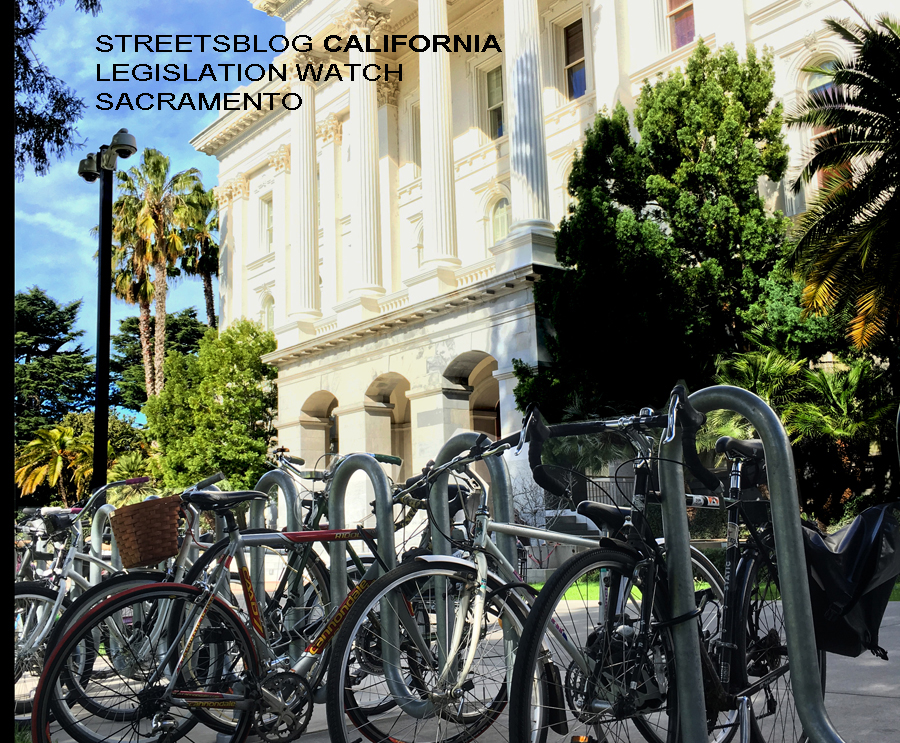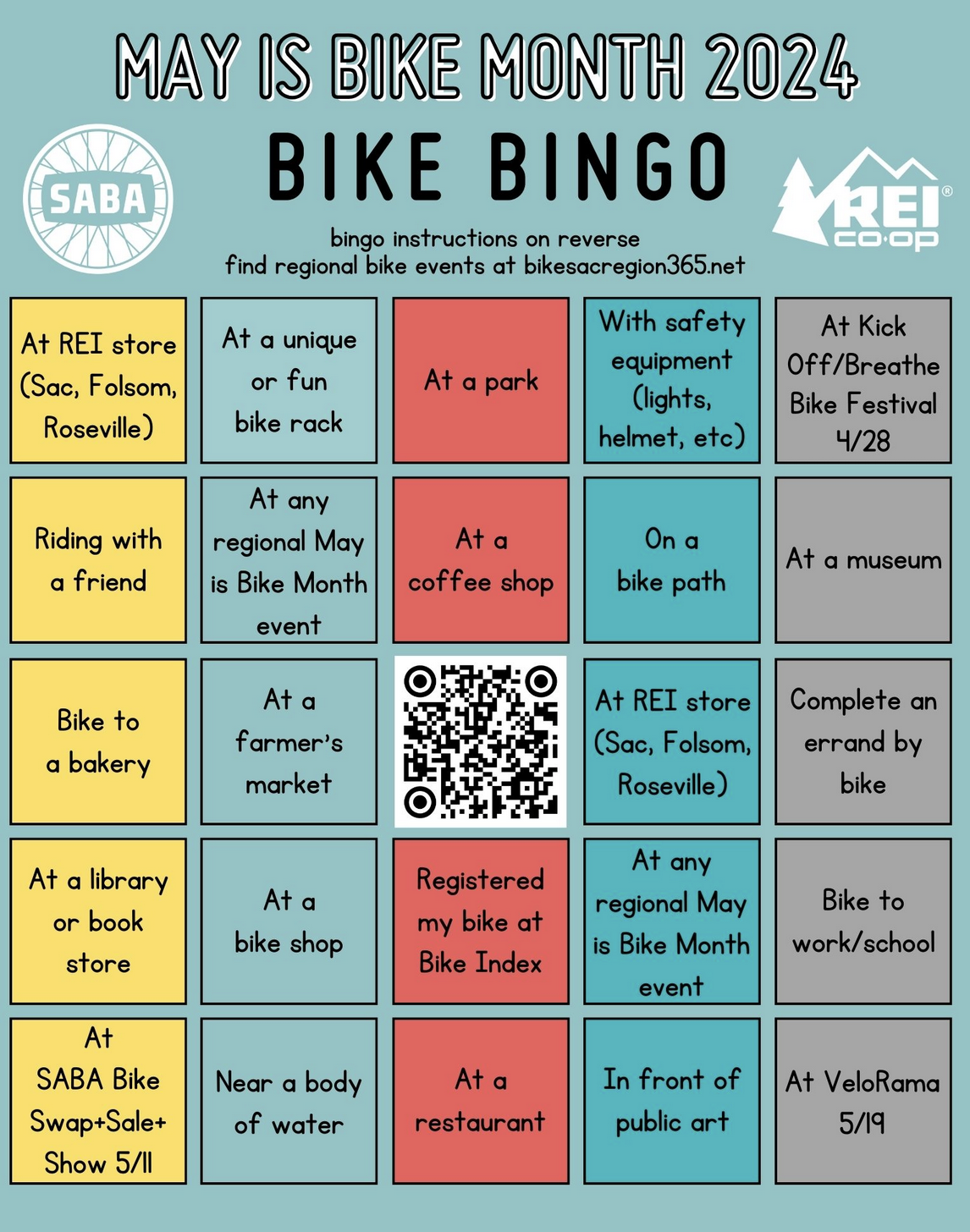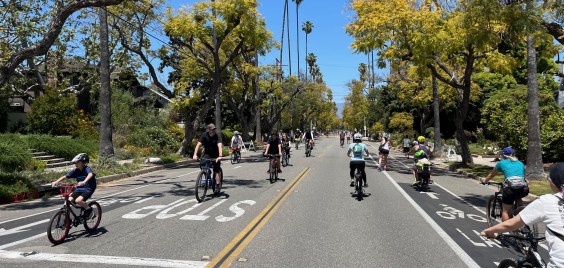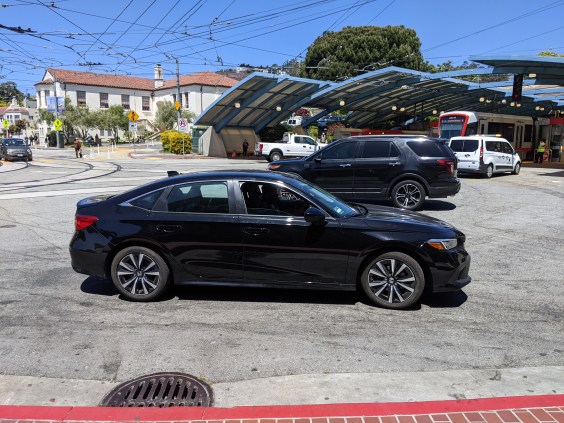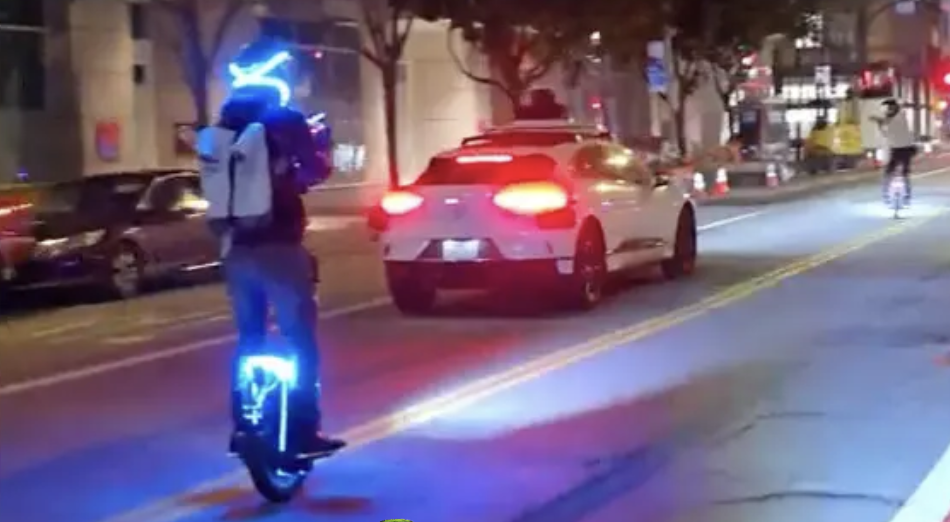Jerry Brown signed his last bills as governor of California on Sunday, and there were some whoppers among them. One of the new laws, for example, will strengthen net neutrality, and got an immediate response in the form of a federal lawsuit. Another, amidst of a raft of bills “to support women, children, and working families” will require California-based corporations to include at least one female member on their boards by 2019. “It's high time corporate boards include the people who constitute more than half the 'persons' in America,” he wrote in his signing message.
Exciting as those are, Streetsblog is trying to concentrate here on bills having to do with transportation, housing, and related issues. Several of these bills-now-laws have been discussed in detail on other Streetsblog posts; links included herein.
Towards Zero Traffic Fatalities Task Force: Brown signed A.B. 2363 from Assemblymember Laura Friedman (D-Glendale), which Streetsblog has been following from its ambitions beginnings to its more plodding, bureaucratic final draft. Is speed a cause of traffic fatalities? Research and experience say so, but some parties—notably the California Association of Highway Patrolmen--are not yet ready to change the state's speed limit law. This law creates a task force, to include representatives from the CHP, academia, Caltrans, the Department of Public Health, local governments, “bike safety organizations,” “motorist service membership organizations” (e.g. AAA), and labor. Its job will be to “develop a structured, coordinated process . . . to develop policies to reduce traffic fatalities to zero,” with a report due in January 2020.
At least the final bill explicitly requires an analysis of the existing, broken process for establishing speed limits, and a discussion of alternatives.
Incentives for Bike Miles: One of the bills signed on that electric ferry a few weeks ago was Senator Nancy Skinner's S.B. 1014, which requires the Air Resources Board and the Public Utilities Commission to come up with baseline measurements of the emissions produced by ride-hail companies including Uber and Lyft. After the baseline will come requirements to reduce those emissions, but the fun part is that the bill will credit those companies with any “clean miles driven" by bike-share using their apps. See previous discussion here.
San Francisco Can Tax Automated Vehicle Trips: A.B. 1184, from Assemblymember Phil Ting (D-San Francisco), would allow that city to impose taxes on trips made by automated vehicles within its boundaries. That includes, but is not limited to, trips using ride-hail apps. The newly minted law limits the amount, allowing a higher tax rate for single-passenger rides and lower rates for shared rides and zero-emission vehicles. Any such tax would have to be passed with a two-thirds vote by city residents, but that's not a far-fetched requirement in a city like San Francisco.
Setting Goals for Housing: A group of bills aimed at making it easier to build housing--and harder to block it--also got signed over the weekend. One was S.B. 828, from Senator Scott Wiener (D-San Francisco), which aims to take some of the politics out of the process of determining an area's need for housing and replace it with data. On the signing of his bill, Wiener wrote:
California is experiencing a terrible housing crisis resulting from a home shortage [which is] exploding housing costs and triggering displacement, over-crowding, poverty, and crushing commutes. We must lower housing costs, and that means changing how we plan for and build housing in California. California’s current process for setting housing goals is highly politicized and not sufficiently tied to actual housing need. Too many cities receive absurdly low housing goals, usually due to politics. Creating a more equitable process for setting housing goals ensures that all cities plan for and build the housing we desperately need. We still have work to do to dig ourselves out of our housing deficit, but today’s action by Governor Brown means we are making progress and working toward these long term solutions.
Assemblymember Richard Bloom (D-Santa Monica) saw his related bill, A.B. 1771, signed. Like S.B. 828, this bill-now-law requires more data, more transparency, and less politicking in the process to decide where housing is most needed. “Local politics and flawed methodology have distorted the [housing needs allocation] process and produced insufficient and inequitable housing across the state,” wrote Bloom in a statement.
By making the process more data-driven and equitable, [A.B. 1771] will ensure that wealthier cities cannot skirt their responsibility to plan for and build housing, [thus ensuring] that housing needs are allocated more fairly across regions and in a way that serves the state’s equity and environmental goals.”
Housing at BART Stations: Brown also signed A.B. 2923 from David Chiu (D-San Francisco) and Tim Grayson (D-Concord), which will allow BART to create a zoning plan for the properties it owns at its stations, and require local cities to match that zoning. BART can't just willy-nilly zone however it wants to, however; there are restrictions on height, for example, so that the station areas aren't out of scale with surrounding areas. But this bill will prevent cities from stalling the planning process by not updating zoning—and might actually result in the development of dense housing next to BART stations. See more discussion of this bill here.
Infill Housing Gets CEQA Streamlining: There were some flaws in A.B. 1804, from Assemblymember Marc Berman (D-Palo Alto), including its loose definition of “infill” and the lack of anti-displacement language, but not enough to keep Brown from signing. See further discussion here.
Fair Housing: Brown signed A.B. 686 from Assemblymember Miguel Santiago (D-Los Angeles). This bill mandates that fair housing is specifically incorporated into the housing elements of general plans, as well as any planning towards fulfilling regionally required housing.
Stadiums in Inglewood and Oakland Will Get CEQA Streamlining Too: Brown signed two bills to streamline environmental approval for stadiums. Both A.B. 734 and A.B. 987 require that the stadium projects show no net increase in greenhouse gas emissions, and find ways to reduce the total number of vehicle trips made to them. They also have to find ways to reduce other pollutants, especially locally—even though developers are allowed to use offsets, “at least fifty percent” of those offsets have to be from nearby communities.
Negative Impacts of NOT Building a Project Are Also Important: A.B. 2782, from Assemblymember Friedman, would allow agencies to consider in their environmental analysis the negative environmental consequences of NOT building a project. The idea, according to the bill's author, is to allow all of a project's impacts to be discussed and weighed in the process of deciding whether to go ahead or not. CEQA guidelines already contain similar language, so this bill-now-law simply puts into statute what is already suggested.
Streetsblog California editor Melanie Curry has been thinking about transportation, and how to improve conditions for bicyclists, ever since commuting to school by bike long before bike lanes were a thing. She was Managing Editor at the East Bay Express, editor of Access Magazine for the University of California Transportation Center, and earned her Masters in City Planning from UC Berkeley.
Stay in touch
Sign up for our free newsletter
More from Streetsblog California
Active Streets Mission-to-Mission – Open Thread
Tens of thousands of participants biked, walked, skated and scootered on car-free streets through San Gabriel, South Pasadena and Alhambra
Four Things to Know About the Historic Automatic Emergency Braking Rule
The new automatic emergency braking rule is an important step forward for road safety — but don't expect it to save many lives on its own.
Supervisor Melgar Betrays Promises, Sells Out Family Killed in West Portal
Well that didn't take long
Tuesday’s Headlines
Robotaxi breaks the law, Waymo defends it; Whistleblower sues Caltrans; SANDAG gets a new leader; Zero-emission zones are helping fight pollution; More
